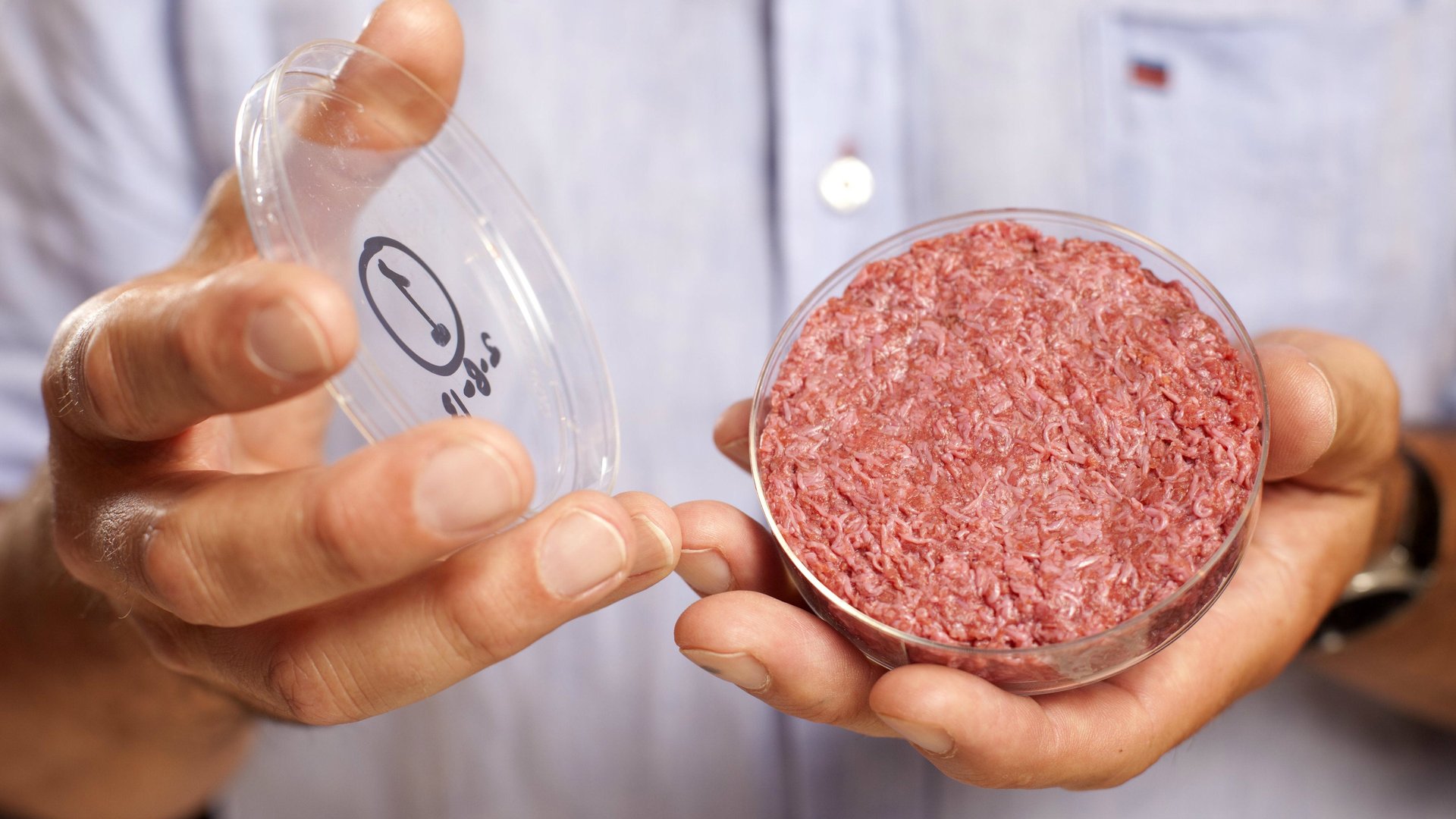The world’s biggest meat companies are betting on cell-cultured meat
The meat industry is on the verge of disrupting itself.


The meat industry is on the verge of disrupting itself.
America’s largest meat company, Tyson Foods, this week (Jan. 29) announced it’s going to dip its toes into the world of cell-cultured meat, known in the food industry as “clean meat.” Tyson’s investment into Oakland, California-based Memphis Meats, shows the factory-farming behemoth is embracing the idea that, in the future, meat may not have to come from a live animal.
Tyson throwing its weight behind Memphis Meats means a lot to the industry. It’s one thing for a startup food company to successfully develop an impressive product in a laboratory, but to scale that product and have it distributed across the consumer market is often just as daunting a challenge. Big meat companies can help clean-meat startups overcome that hurdle by tapping into their well-established distribution networks and existing relationships with major retailers.
Until recently, scientists and entrepreneurs in this clean-meat technology space only fantasized about attracting the attention of giant companies such as Tyson, which could just as easily have bristled at the idea of clean meat competitor products challenging their conventional meats in grocery stores. But rather than go on the defensive, the world’s biggest meat companies are instead flirting with clean meat startups. In August 2017, Cargill—a global company with an annual revenue of $109 billion—invested in Memphis Meats. In January, the third-largest poultry producer in Europe, PHW Group, announced it was partnering with SuperMeat, an Israeli clean-meat company. Tyson Foods—with annual revenues of around $38 billion—is the latest entrant into the space.
“When we’re talking to meat companies that are producing meat via livestock, I think there is an understanding that there are challenges to the way we produce meat today,” says David Kay, a senior executive at Memphis Meats. “There needs to be a more efficient way of producing meat.”
Efficiency is the key selling point. Clean-meat startups argue that their production facilities will use less water and land than factory farms, and that animal feed will become unnecessary. Slaughter would become obsolete, and because lab-grown meat would be made in controlled environments, it wouldn’t be exposed to pathogens. Those are attractive prospects for a global meat company looking to cut costs and hold on to customers increasingly seeking protein alternatives to conventional meat.
Companies such as Tyson Foods have already started to rebrand themselves on a fundamental level, as operations that are beyond meat.
“We have begun to think about Tyson very differently,” says Justin Whitmore, the company’s chief sustainability officer. “We think of ourselves more as a protein company. There’s growth and protein demand in other forms.” If the corporations that produce and sell protein can do it more cheaply, they will, even if it means moving away from the conventional meat market.
Paul Shapiro is an animal-rights activist and author of a new book called Clean Meat, which explores the new technology and the people behind it. In his view, monetary investments like Tyson’s are just the beginning of how the meat industry will embrace clean meat. Shapiro says he would not be surprised if a major meat company acquired a clean-meat company outright in the near future. He also said he thinks meat companies will seek licensing agreements with clean meat startups. In a licensing agreement, companies such as Tyson Foods would theoretically pay a clean-meat company for its expertise and production method, then build facilities to grow cell-cultured meats at scale.
There were early signs of this industry shift in 2017, after Los Angeles-based Beyond Meat got its plant-based imitation beef patties into the chilled meat sections in several mainstream US grocery store chains. That was a signal that what had been known as the “meat section” could soon become the “protein section.” Traditional meat companies are now starting to act like that’s inevitable: Just this week (Jan. 30), Maple Leaf Foods, a major Canadian packaged-meats company, closed a deal to acquire Field Roast Grain Meat Company, a maker of grain-based proteins and vegan cheeses. Tyson’s move is yet another sign that the meat industry has accepted it needs to change.